Chang-Shing Lee
Robotic Assistant Agent for Student and Machine Co-Learning on AI-FML Practice with AIoT Application
May 11, 2021



Abstract:In this paper, the Robotic Assistant Agent for student and machine co-learning on AI-FML practice with AIoT application is presented. The structure of AI-FML contains three parts, including fuzzy logic, neural network, and evolutionary computation. Besides, the Robotic Assistant Agent (RAA) can assist students and machines in co-learning English and AI-FML practice based on the robot Kebbi Air and AIoT-FML learning tool. Since Sept. 2019, we have introduced an Intelligent Speaking English Assistant (ISEA) App and AI-FML platform to English and computer science learning classes at two elementary schools in Taiwan. We use the collected English-learning data to train a predictive regression model based on students' monthly examination scores. In Jan. 2021, we further combined the developed AI-FML platform with a novel AIoT-FML learning tool to enhance students' interests in learning English and AI-FML with basic hands-on practice. The proposed RAA is responsible for reasoning students' learning performance and showing the results on the AIoT-FML learning tool after communicating with the AI-FML platform. The experimental results and the collection of students' feedback show that this kind of learning model is popular with elementary-school and high-school students, and the learning performance of elementary-school students is improved.
A Study on AI-FML Robotic Agent for Student Learning Behavior Ontology Construction
Jun 27, 2020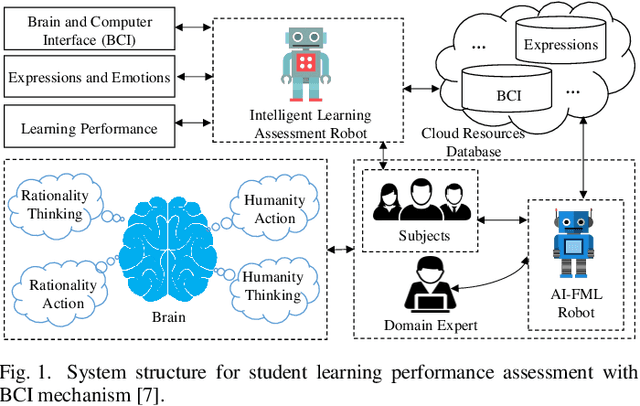
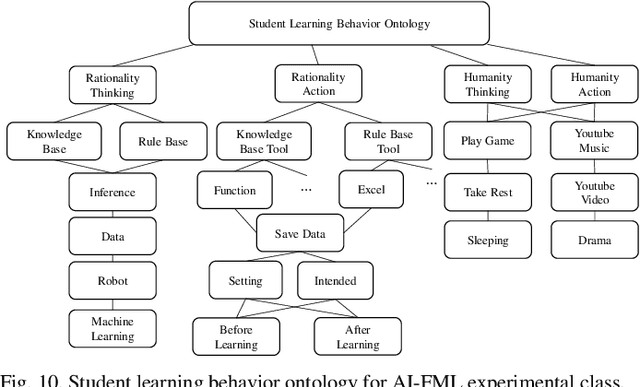
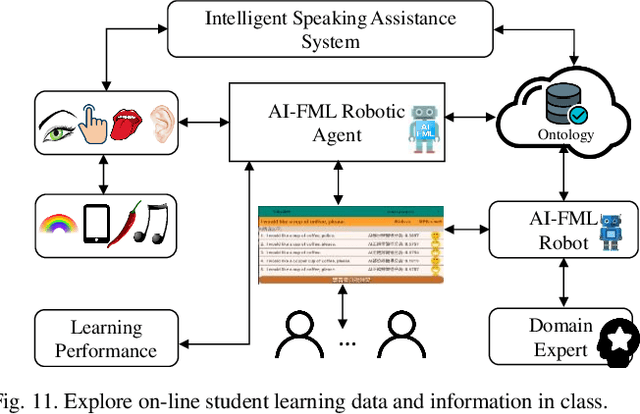
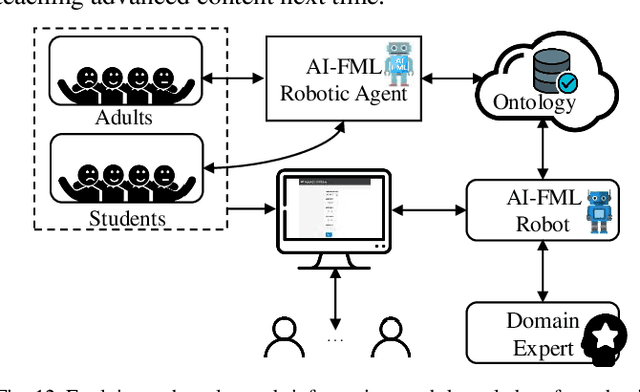
Abstract:In this paper, we propose an AI-FML robotic agent for student learning behavior ontology construction which can be applied in English speaking and listening domain. The AI-FML robotic agent with the ontology contains the perception intelligence, computational intelligence, and cognition intelligence for analyzing student learning behavior. In addition, there are three intelligent agents, including a perception agent, a computational agent, and a cognition agent in the AI-FML robotic agent. We deploy the perception agent and the cognition agent on the robot Kebbi Air. Moreover, the computational agent with the Deep Neural Network (DNN) model is performed in the cloud and can communicate with the perception agent and cognition agent via the Internet. The proposed AI-FML robotic agent is applied in Taiwan and tested in Japan. The experimental results show that the agents can be utilized in the human and machine co-learning model for the future education.
A GFML-based Robot Agent for Human and Machine Cooperative Learning on Game of Go
Jan 22, 2019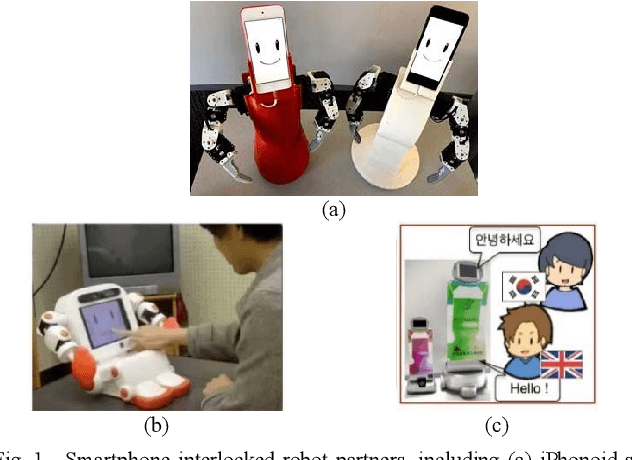
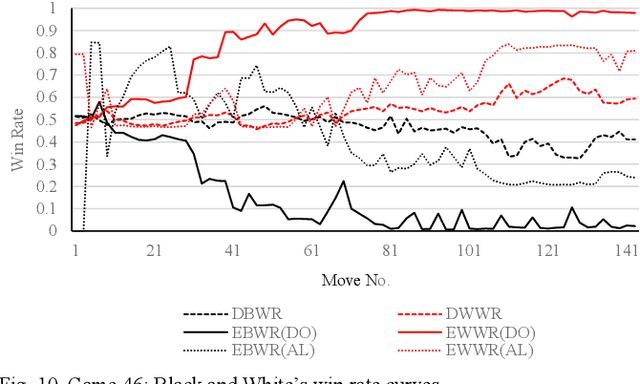
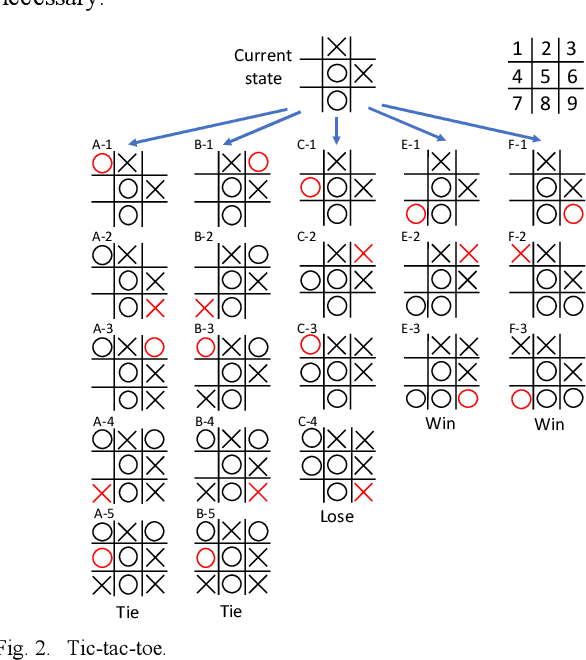
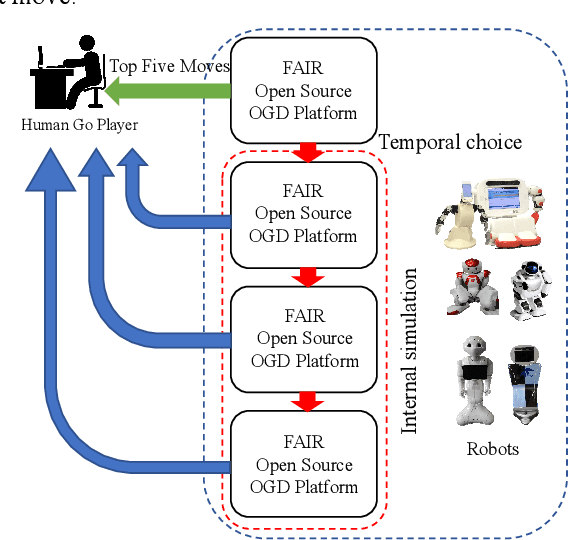
Abstract:This paper applies a genetic algorithm and fuzzy markup language to construct a human and smart machine cooperative learning system on game of Go. The genetic fuzzy markup language (GFML)-based Robot Agent can work on various kinds of robots, including Palro, Pepper, and TMUs robots. We use the parameters of FAIR open source Darkforest and OpenGo AI bots to construct the knowledge base of Open Go Darkforest (OGD) cloud platform for student learning on the Internet. In addition, we adopt the data from AlphaGo Master sixty online games as the training data to construct the knowledge base and rule base of the co-learning system. First, the Darkforest predicts the win rate based on various simulation numbers and matching rates for each game on OGD platform, then the win rate of OpenGo is as the final desired output. The experimental results show that the proposed approach can improve knowledge base and rule base of the prediction ability based on Darkforest and OpenGo AI bot with various simulation numbers.
PFML-based Semantic BCI Agent for Game of Go Learning and Prediction
Jan 10, 2019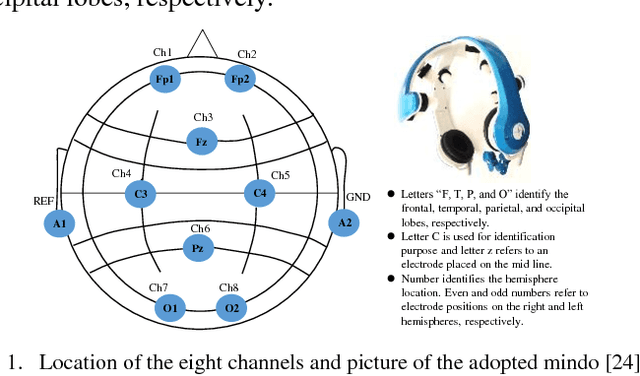
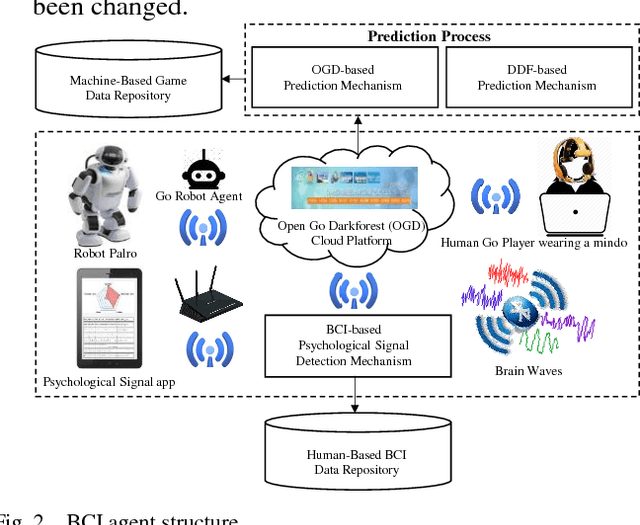
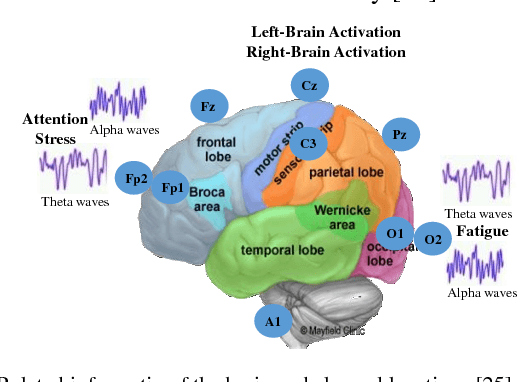
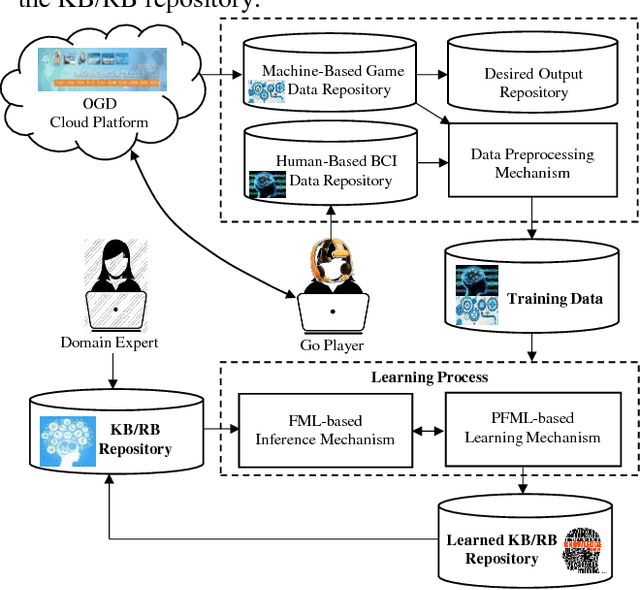
Abstract:This paper presents a semantic brain computer interface (BCI) agent with particle swarm optimization (PSO) based on a Fuzzy Markup Language (FML) for Go learning and prediction applications. Additionally, we also establish an Open Go Darkforest (OGD) cloud platform with Facebook AI research (FAIR) open source Darkforest and ELF OpenGo AI bots. The Japanese robot Palro will simultaneously predict the move advantage in the board game Go to the Go players for reference or learning. The proposed semantic BCI agent operates efficiently by the human-based BCI data from their brain waves and machine-based game data from the prediction of the OGD cloud platform for optimizing the parameters between humans and machines. Experimental results show that the proposed human and smart machine co-learning mechanism performs favorably. We hope to provide students with a better online learning environment, combining different kinds of handheld devices, robots, or computer equipment, to achieve a desired and intellectual learning goal in the future.
PSO-based Fuzzy Markup Language for Student Learning Performance Evaluation and Educational Application
Feb 24, 2018
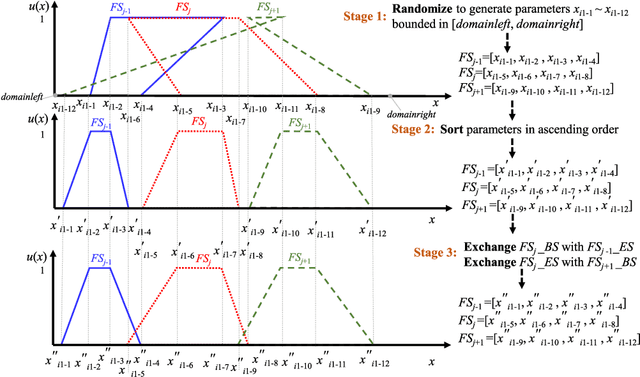
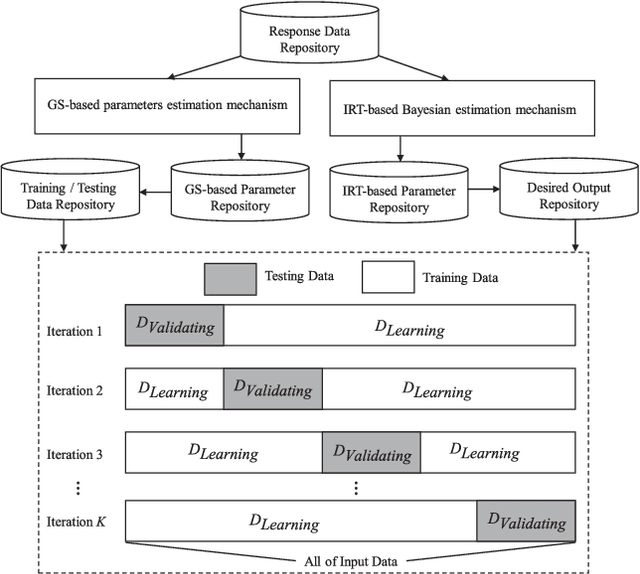
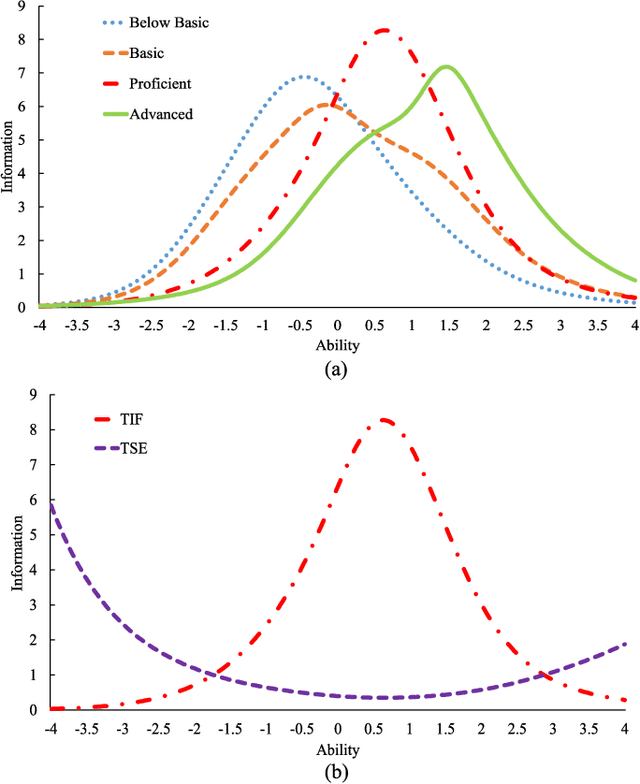
Abstract:This paper proposes an agent with particle swarm optimization (PSO) based on a Fuzzy Markup Language (FML) for students learning performance evaluation and educational applications, and the proposed agent is according to the response data from a conventional test and an item response theory. First, we apply a GS-based parameter estimation mechanism to estimate the items parameters according to the response data, and then to compare its results with those of an IRT-based Bayesian parameter estimation mechanism. In addition, we propose a static-IRT test assembly mechanism to assemble a form for the conventional test. The presented FML-based dynamic assessment mechanism infers the probability of making a correct response to the item for a student with various abilities. Moreover, this paper also proposes a novel PFML learning mechanism for optimizing the parameters between items and students. Finally, we adopt a K-fold cross validation mechanism to evaluate the performance of the proposed agent. Experimental results show that the novel PFML learning mechanism for the parameter estimation and learning optimization performs favorably. We believe the proposed PFML will be a reference for education research and pedagogy and an important co-learning mechanism for future human-machine educational applications.
Human and Smart Machine Co-Learning with Brain Computer Interface
Feb 19, 2018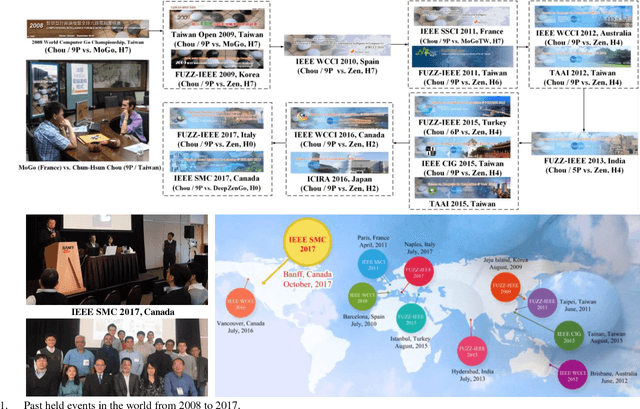
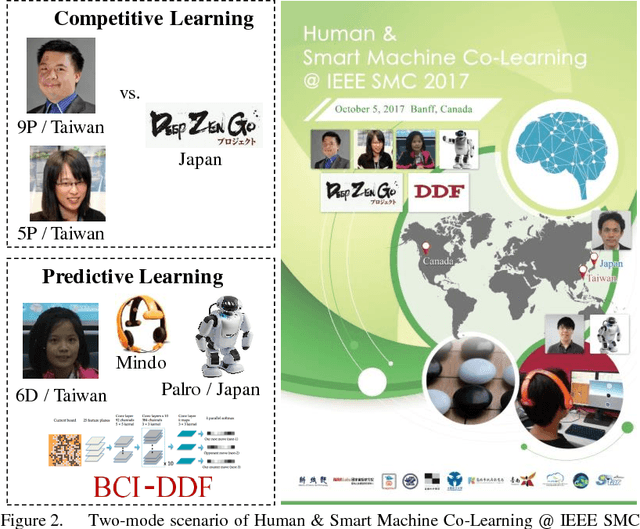
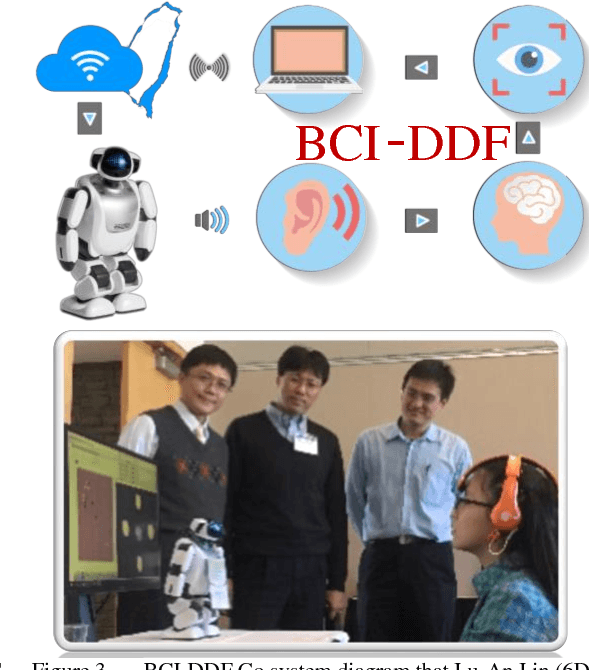
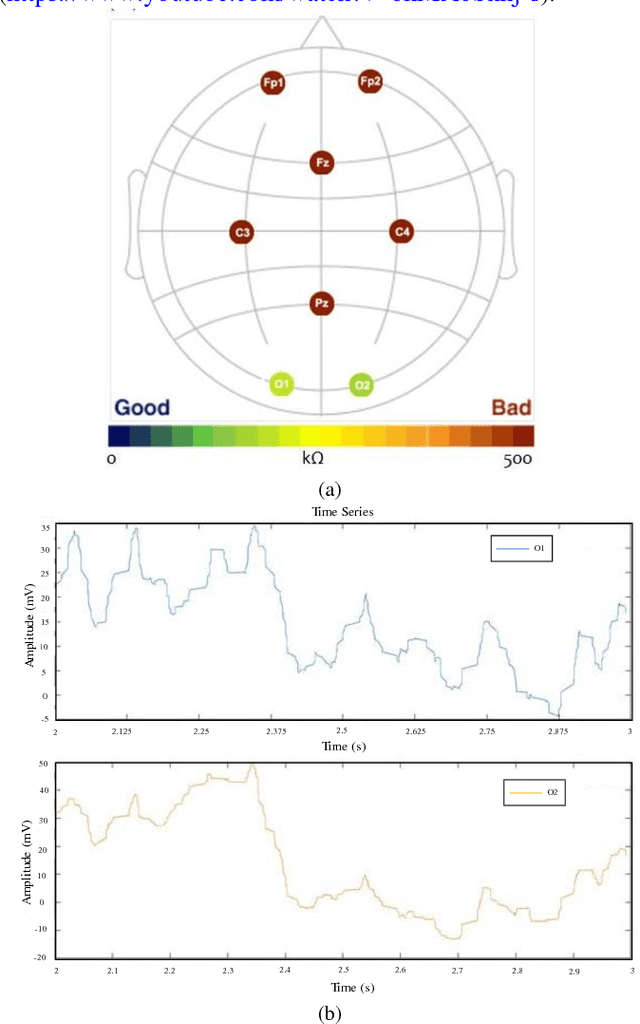
Abstract:Machine learning has become a very popular approach for cybernetics systems, and it has always been considered important research in the Computational Intelligence area. Nevertheless, when it comes to smart machines, it is not just about the methodologies. We need to consider systems and cybernetics as well as include human in the loop. The purpose of this article is as follows: (1) To integrate the open source Facebook AI Research (FAIR) DarkForest program of Facebook with Item Response Theory (IRT), to the new open learning system, namely, DDF learning system; (2) To integrate DDF Go with Robot namely Robotic DDF Go system; (3) To invite the professional Go players to attend the activity to play Go games on site with a smart machine. The research team will apply this technology to education, such as, playing games to enhance the children concentration on learning mathematics, languages, and other topics. With the detected brainwaves, the robot will be able to speak some words that are very much to the point for the students and to assist the teachers in classroom in the future.
Ontology-based Fuzzy Markup Language Agent for Student and Robot Co-Learning
Jan 26, 2018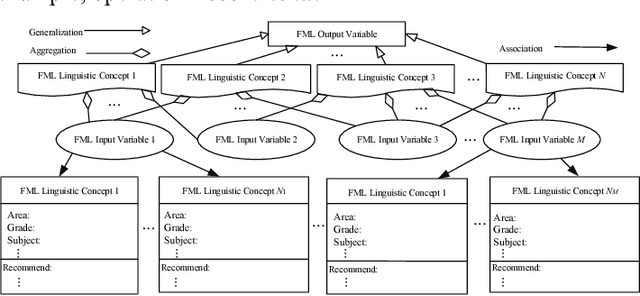
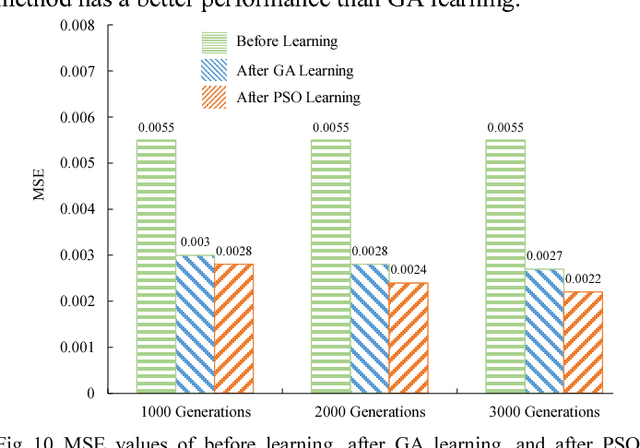
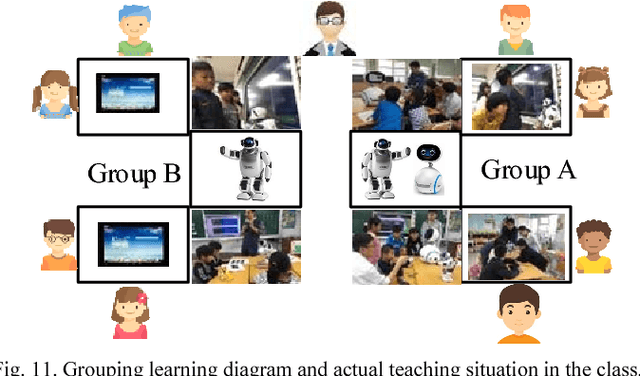
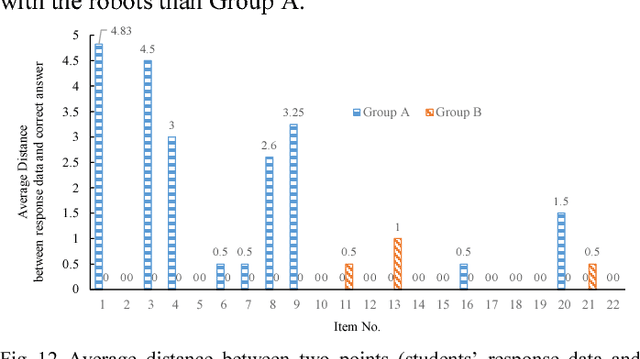
Abstract:An intelligent robot agent based on domain ontology, machine learning mechanism, and Fuzzy Markup Language (FML) for students and robot co-learning is presented in this paper. The machine-human co-learning model is established to help various students learn the mathematical concepts based on their learning ability and performance. Meanwhile, the robot acts as a teacher's assistant to co-learn with children in the class. The FML-based knowledge base and rule base are embedded in the robot so that the teachers can get feedback from the robot on whether students make progress or not. Next, we inferred students' learning performance based on learning content's difficulty and students' ability, concentration level, as well as teamwork sprit in the class. Experimental results show that learning with the robot is helpful for disadvantaged and below-basic children. Moreover, the accuracy of the intelligent FML-based agent for student learning is increased after machine learning mechanism.
FML-based Dynamic Assessment Agent for Human-Machine Cooperative System on Game of Go
Jul 16, 2017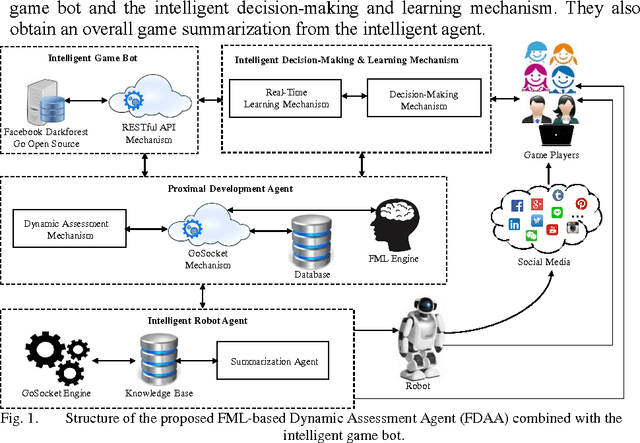
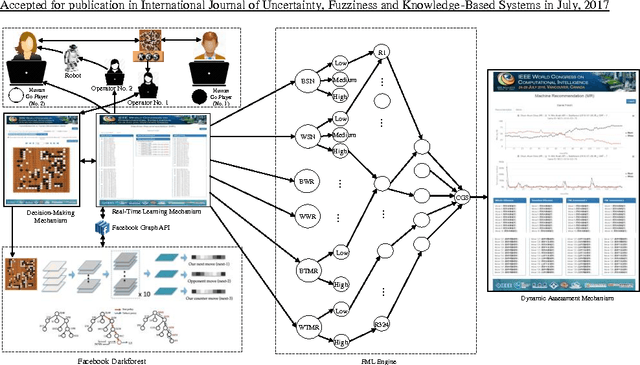
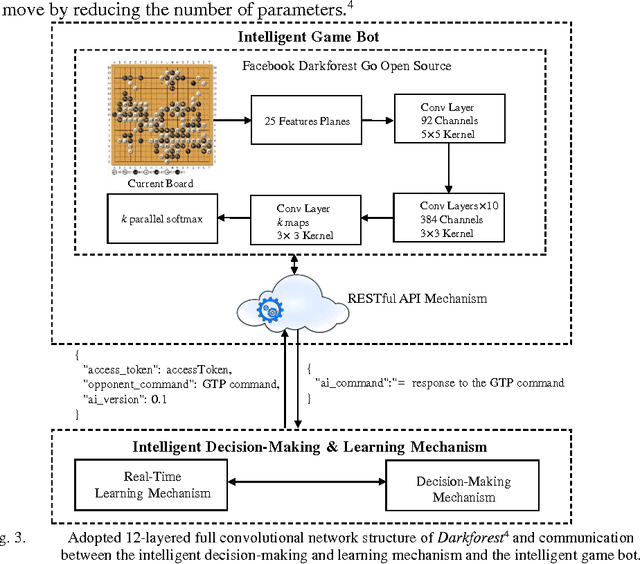

Abstract:In this paper, we demonstrate the application of Fuzzy Markup Language (FML) to construct an FML-based Dynamic Assessment Agent (FDAA), and we present an FML-based Human-Machine Cooperative System (FHMCS) for the game of Go. The proposed FDAA comprises an intelligent decision-making and learning mechanism, an intelligent game bot, a proximal development agent, and an intelligent agent. The intelligent game bot is based on the open-source code of Facebook Darkforest, and it features a representational state transfer application programming interface mechanism. The proximal development agent contains a dynamic assessment mechanism, a GoSocket mechanism, and an FML engine with a fuzzy knowledge base and rule base. The intelligent agent contains a GoSocket engine and a summarization agent that is based on the estimated win rate, real-time simulation number, and matching degree of predicted moves. Additionally, the FML for player performance evaluation and linguistic descriptions for game results commentary are presented. We experimentally verify and validate the performance of the FDAA and variants of the FHMCS by testing five games in 2016 and 60 games of Google Master Go, a new version of the AlphaGo program, in January 2017. The experimental results demonstrate that the proposed FDAA can work effectively for Go applications.
Human vs. Computer Go: Review and Prospect
Jun 07, 2016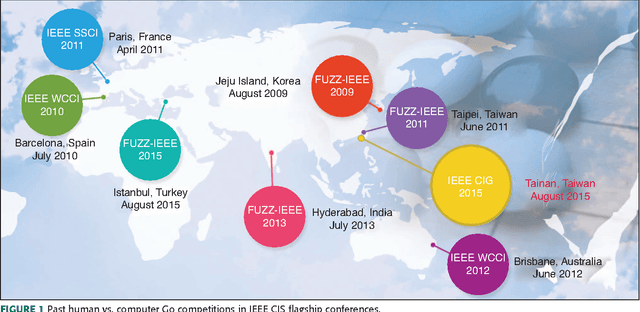
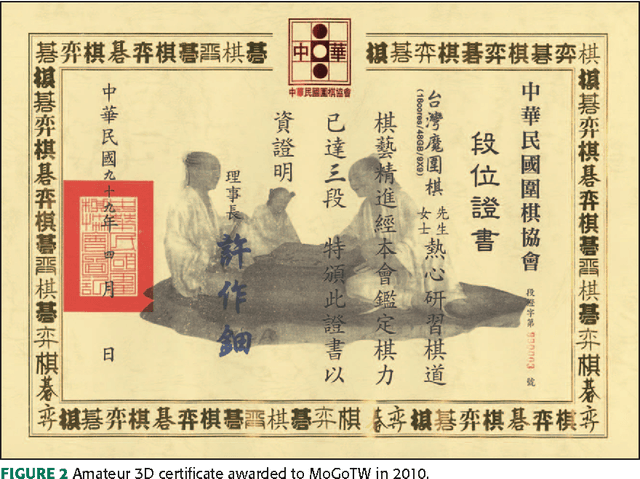
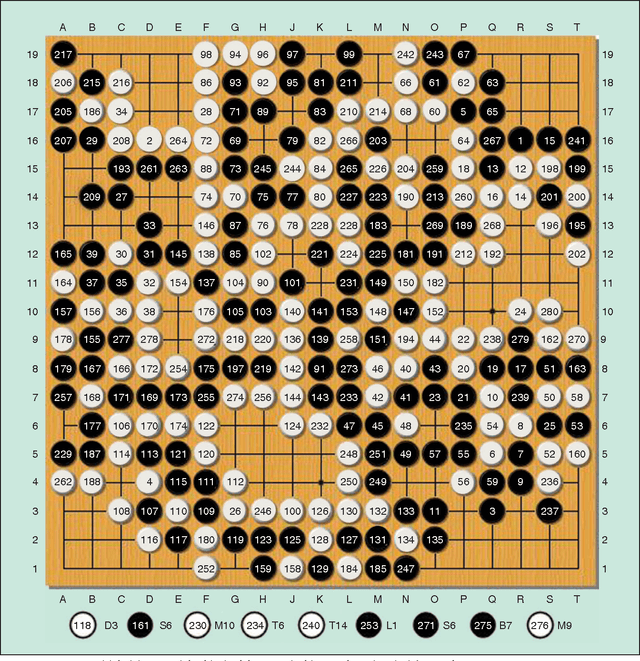
Abstract:The Google DeepMind challenge match in March 2016 was a historic achievement for computer Go development. This article discusses the development of computational intelligence (CI) and its relative strength in comparison with human intelligence for the game of Go. We first summarize the milestones achieved for computer Go from 1998 to 2016. Then, the computer Go programs that have participated in previous IEEE CIS competitions as well as methods and techniques used in AlphaGo are briefly introduced. Commentaries from three high-level professional Go players on the five AlphaGo versus Lee Sedol games are also included. We conclude that AlphaGo beating Lee Sedol is a huge achievement in artificial intelligence (AI) based largely on CI methods. In the future, powerful computer Go programs such as AlphaGo are expected to be instrumental in promoting Go education and AI real-world applications.
 Add to Chrome
Add to Chrome Add to Firefox
Add to Firefox Add to Edge
Add to Edge